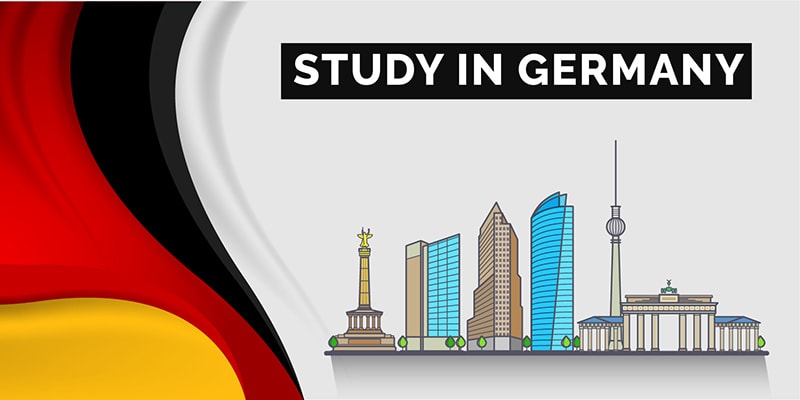Germany is an increasingly popular destination for international students seeking a Master’s or MBA degree. With its high-quality education system, diverse culture, and strong economy, Germany offers a unique and rewarding academic experience. This guide will provide a comprehensive overview of pursuing a Master’s or MBA degree in Germany, covering everything from top universities to application procedures.
Why Study in Germany?
Germany is home to some of the world’s most prestigious universities and offers a variety of benefits for international students:
High-Quality Education: German universities are known for their rigorous academic standards and innovative research.
No Tuition Fees: Public universities in Germany typically charge no tuition fees, making education more accessible.
Strong Economy: Germany’s robust economy provides excellent job opportunities for graduates.
Cultural Diversity: With a rich cultural heritage and diverse population, Germany offers a vibrant and inclusive environment.
Top German Universities for Master’s and MBA Programs
1. Technical University of Munich (TUM)
Programs: Master in Management, MBA in Innovation and Business Creation
Tuition Fees: No tuition fees for most programs; some MBA programs may have fees.
Language Requirements: IELTS (6.5) or TOEFL (88)
2. University of Mannheim
Programs: Master in Management, Mannheim Full-Time MBA
Tuition Fees: €3,500 per semester for MBA programs
Language Requirements: IELTS (7.0) or TOEFL (95)
3. WHU – Otto Beisheim School of Management
Programs: Master in Management, MBA
Tuition Fees: €15,000 per semester for MBA programs
Language Requirements: IELTS (7.0) or TOEFL (100)
4. ESMT Berlin
Programs: Master’s in Management, Full-Time MBA
Tuition Fees: €43,500 for MBA programs
Language Requirements: IELTS (7.0) or TOEFL (95)
5. Frankfurt School of Finance & Management
Programs: Master of Finance, MBA
Tuition Fees: €37,000 for MBA programs
Language Requirements: IELTS (7.0) or TOEFL (90)
Top German Universities for Engineering Master’s Degrees (2024)
| Business School | Program | Acceptance Rate | Average GMAT Score | Average GPA | Work Experience |
|---|---|---|---|---|---|
| Harvard Business School | MBA | 12% | 730 | 3.7 | 4-5 years |
| Stanford Graduate School of Business | MBA | 6% | 737 | 3.73 | 4-5 years |
| Wharton School of UPenn | MBA | 20% | 730 | 3.6 | 5 years |
| MIT Sloan School of Management | MBA | 14% | 727 | 3.54 | 5 years |
| University of Chicago Booth | MBA | 25% | 731 | 3.6 | 5 years |
| Columbia Business School | MBA | 18% | 732 | 3.5 | 5 years |
| Kellogg School of Management | MBA | 20% | 724 | 3.6 | 5 years |
Admissions Process
1. Research and Choose Programs
Research various programs and German universities to find those that best match your career goals and interests.
2. Meet Admission Requirements
Ensure you meet the admission requirements for your chosen programs. Common requirements include:
Bachelor’s Degree: Relevant undergraduate degree with a good GPA.
Work Experience: Typically 2-5 years for MBA programs.
Standardized Tests: GMAT or GRE scores.
Language Proficiency: IELTS or TOEFL scores.
Essays and SOP: Strong personal statement and essays.
Letters of Recommendation: From academic or professional references.
3. Gather Application Materials
Prepare the necessary documents for your application, including:
Transcripts: Official academic transcripts.
CV/Resume: Highlighting relevant experience and achievements.
Standardized Test Scores: GMAT, GRE, IELTS, or TOEFL.
Personal Statement and Essays: Tailored to each program.
Letters of Recommendation: Typically 2-3 letters.
4. Apply Online
Submit your applications through the universities’ online portals. Pay attention to application deadlines and ensure all sections are accurately completed.
5. Attend Interviews
If shortlisted, you will be invited for an interview. Prepare thoroughly by researching the program and practicing common interview questions.
Costs and Funding
1. Tuition Fees
While many public universities in Germany do not charge tuition fees for Master’s programs, MBA programs often have fees that can range from €15,000 to €43,500.
2. Living Expenses
Estimated monthly living expenses in Germany range from €850 to €1,200, covering accommodation, food, transportation, and other personal costs.
3. Scholarships and Financial Aid
There are various scholarships available for international students, such as:
DAAD Scholarships: Offered by the German Academic Exchange Service.
Erasmus+: For students from the EU.
University-Specific Scholarships: Offered by individual universities.
Post-Graduation Opportunities
Germany offers excellent post-graduation opportunities due to its strong economy and favorable work visa policies. German graduates can apply for an 18-month job search visa and secure employment in top companies across various industries.
Wrapping Up!
Pursuing a Master’s or MBA degree in Germany is a fantastic opportunity for international students looking for high-quality education and global career prospects. By following the steps outlined in this guide, you can navigate the admissions process and enhance your chances of success.
The Acadway offers personalized guidance from alumni of top business schools to help you craft standout applications. Start building your academic pathway today with The Acadway.

